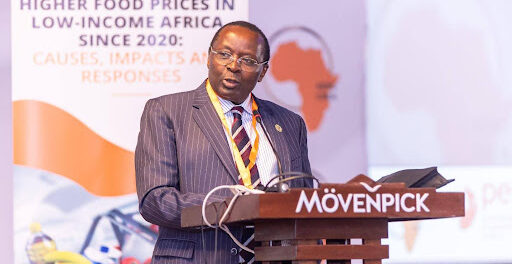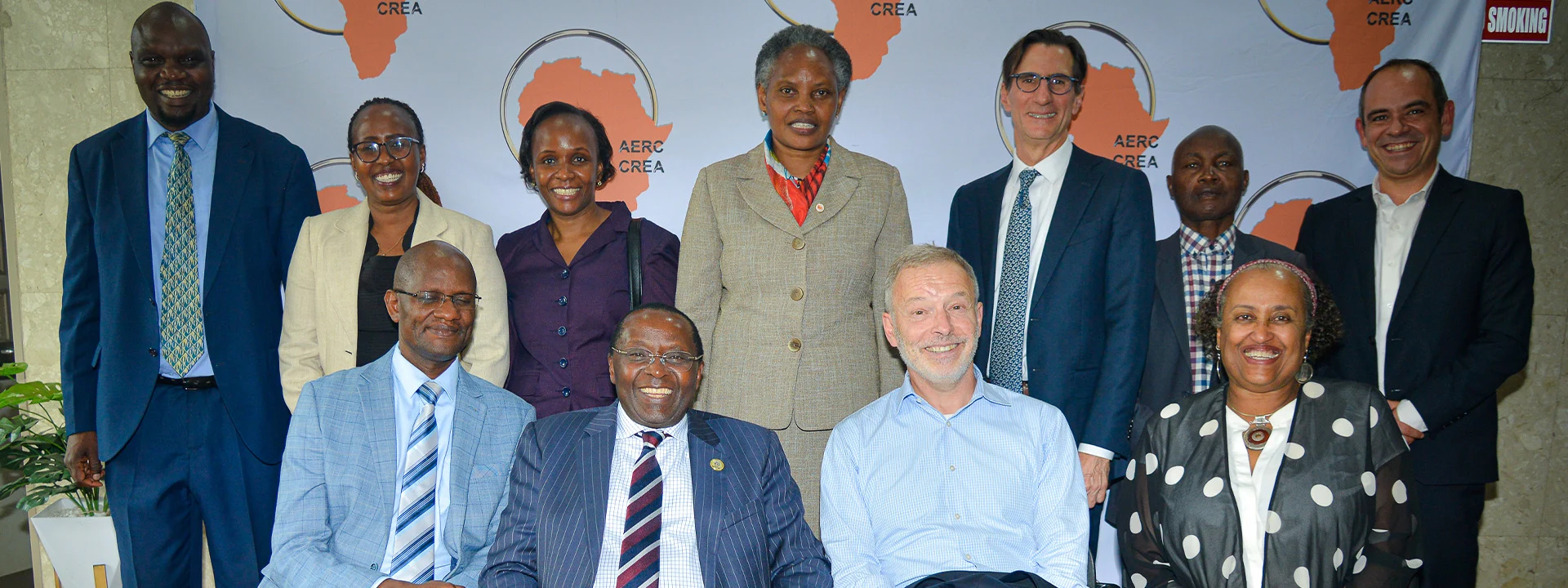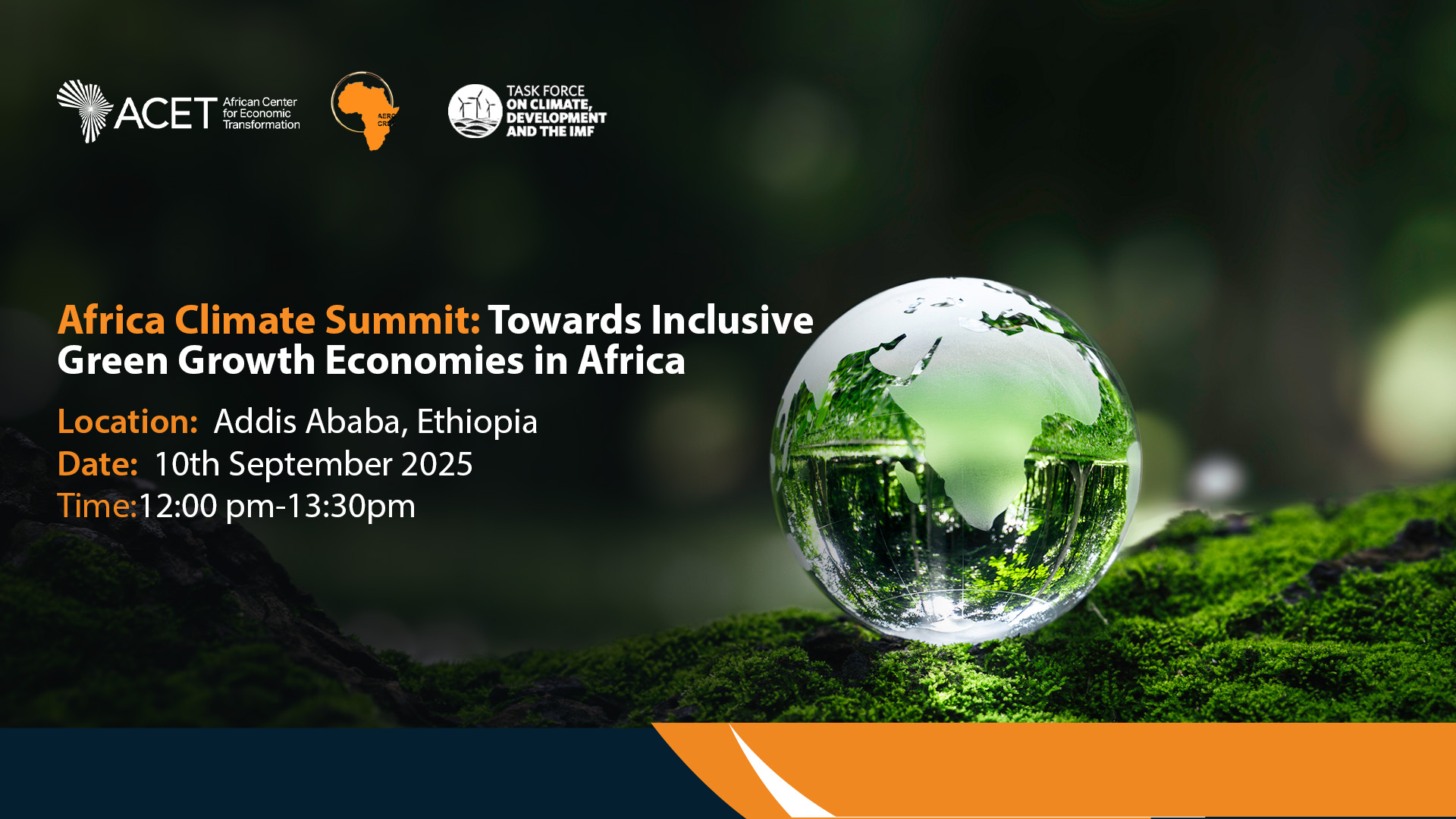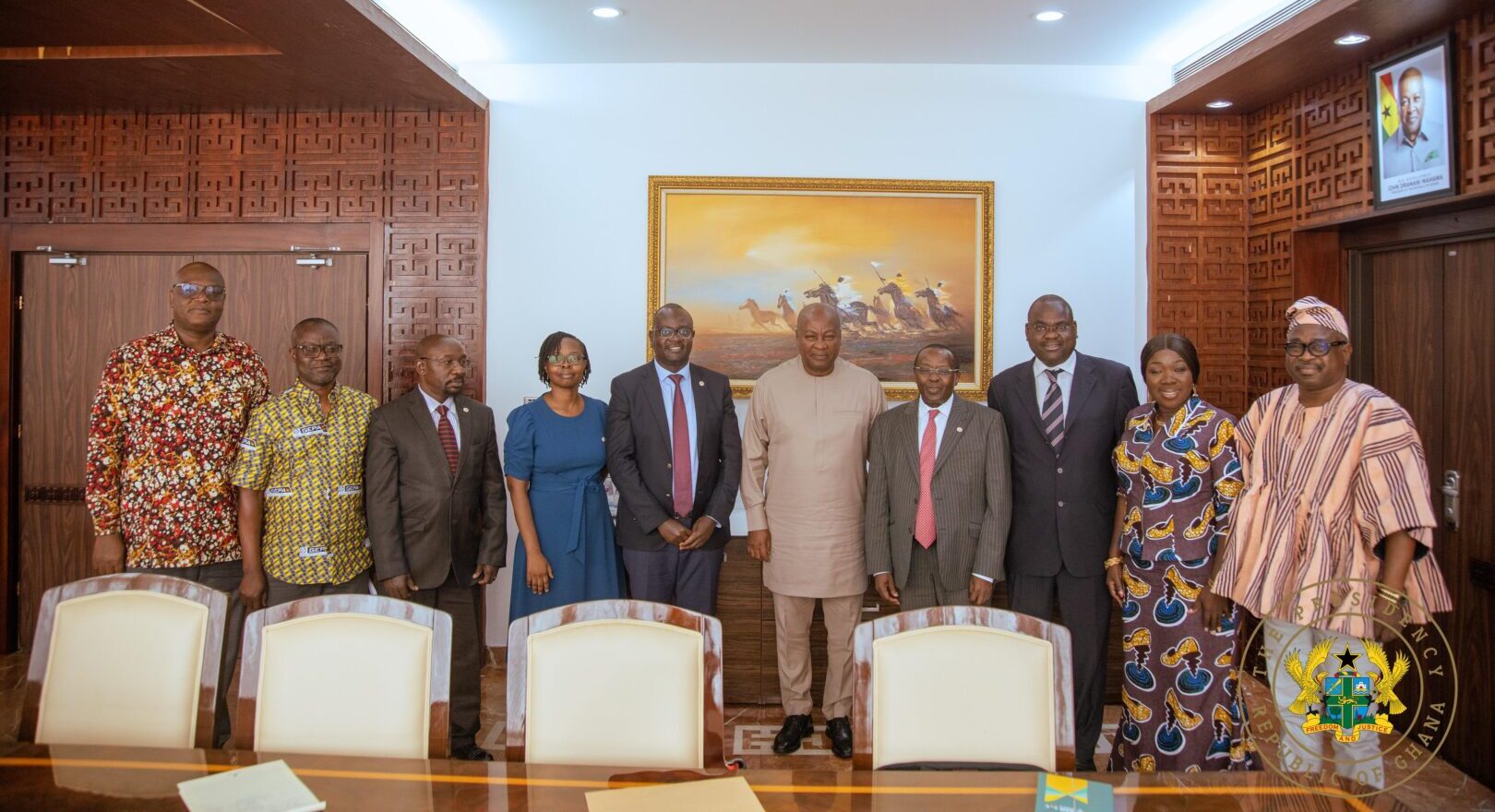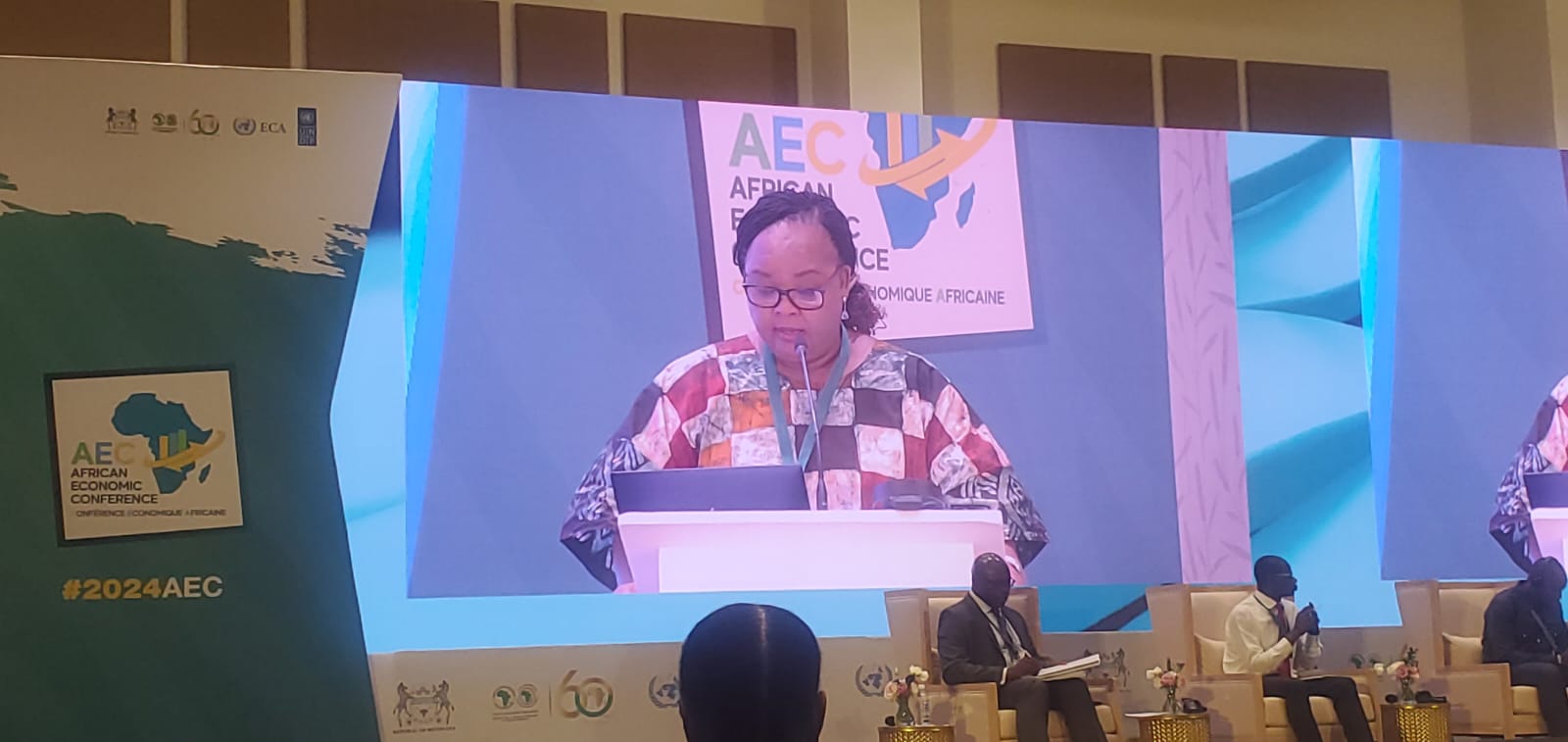

AERC Special Session Lights Up the African Economic Conference 2024
November 27, 2024The African Economic Research Consortium (AERC) had an awakening special session at the African Economic Conference 2024 on the sub-theme “Navigating Uncertainty: Strategies for Building Resilience in Africa”. The session explored the multifaceted challenges and opportunities for building resilience in African economies in the face of rising global uncertainty. The conference was held in Gaborone, Botswana, from 23-25 November 2024.
The Keynote was delivered by Hon. Dr. Monica Musenero Masanza, Minister for Science, Technology and Innovation, Office of the President, Republic of Uganda, while the session was Moderated by Professor Dirk Willem te Velde, Principal Research Fellow and Director at the ODI.
The session drew on key findings and recommendations from reports by the ODI, the ECOWAS Bank for Investment and Development (EBID) and the European Investment Bank (EIB). It examined the impact of global shocks, the role of finance and investment and the importance of regional cooperation in navigating uncertainty and promoting sustainable growth in Africa. Through a dynamic panel discussion, this session fostered dialogue among policymakers, researchers, and stakeholders to identify concrete actions and partnerships for securing Africa’s economic future.
The objectives of the session were to unpack the findings and policy recommendations from the reports, highlighting their relevance to the AEC 2024 theme; analyze the impact of global shocks, such as the Russia-Ukraine war and the COVID-19 pandemic on African economies as well as their implications for vulnerable groups; facilitate an in-depth discussion and dialogue on the interconnected challenges of geopolitical tensions, economic volatility, climate change and their impact on Africa’s development as well as to identify practical solutions and policy options for building resilience and promoting inclusive sustainable growth, with a focus on diversification, regional cooperation, financial inclusion and climate-smart investments.
The session also explored the role of development finance institutions, governments and the private sector in fostering a resilient and inclusive economic future for Africa as well as examined the importance of regional cooperation and integration in addressing shared challenges and building a more resilient and prosperous Africa.
Prof. Jane Mariara, the Executive Director, of the Partnership for Economic Policy (PEP), highlighted the impact of the Russia-Ukraine war on Africa, especially on women and vulnerable populations, emphasizing the need for tailored policy responses and social safety nets. She explained how the Russia-Ukraine war has disproportionately impacted women and vulnerable populations in Africa, and the specific policy interventions required to address their needs. Considering the multiple shocks faced by African economies, she pointed out that social safety nets need to be strengthened and targeted to protect the most vulnerable groups and prevent long-term scarring effects.
Dr. Pagnamam George Yekpa (EBID), presented key findings from the West African Development Outlook, focusing on strategies for building resilience to recurring shocks. His presentation focused on the most pressing challenges facing West African economies in terms of building resilience to recurring shocks, and the key policy recommendations from the EBID report. Dr. Yekpa explained how regional cooperation and integration within ECOWAS can contribute to strengthening resilience and promoting economic diversification in the face of global uncertainty.
Colin Bermingham, also from the EIB, discussed the evolving financial landscape in Africa, focusing on addressing the financing gap, harnessing fintech and promoting green finance. The presentation looked at how the financial sector in Africa, including traditional banks and fintech companies, contributes to building resilience and promoting sustainable development in the context of climate change and digital transitions. Issues such as the key barriers to unlocking investment in Africa, and how can these be overcome to foster a more conducive environment for private sector growth and industrialization, were deliberated on.
Recent global events, including the Russia-Ukraine war, the COVID-19 pandemic and the ongoing climate crisis, have exposed vulnerabilities and underscored the importance of building resilience. While Africa has demonstrated remarkable economic progress in recent decades, persistent challenges such as limited access to finance, infrastructure gaps and social inequalities continue to hinder sustainable development.
The session concluded by highlighting the importance of collaboration, innovation, and proactive policymaking in securing Africa’s economic future. The potential for Africa to emerge stronger and more resilient from the current challenges, charting a path towards sustainable and inclusive growth was emphasized.


